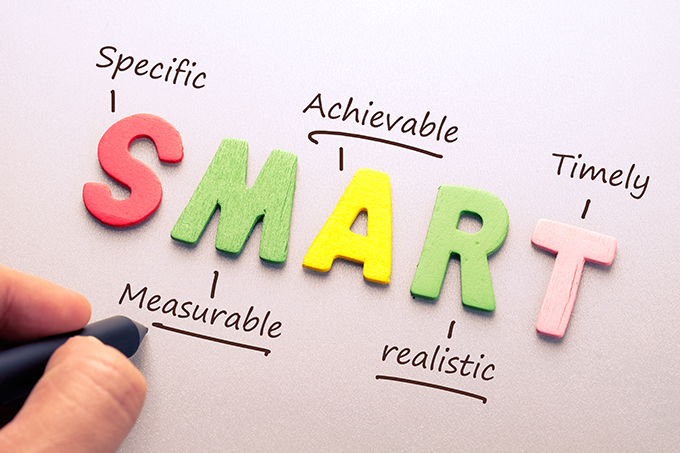Many of us take a few moments at the end of the year to create a list of resolutions for the New Year, often focused on health, fitness and personal goals. But careers, like individuals, can benefit from some thoughtful planning and direction, too. Not sure where to begin? We got you; just keep reading!
1. Reflect
Before you start planning for the future, it's important to take a step back and look at the past year. The usual inclination is to think of the failures and challenges that we experienced over the last year, but it's equally important to note the successes and achievements. Ask yourself questions like:
- Where did I succeed in work last year?
- What skills did I acquire or improve upon?
- What challenges did I face? Did I overcome them?
- Did I experience personal or professional growth?
Write down your answers and read back through them. This will give you a clearer picture of where you stand in your career and where you'd like to go.

2. Set Goals
The key to making resolutions of any kind — and sticking to them! — is to make detailed and measurable goals. Vague plans, like “do better at work,” are less likely to be achieved because there's no clear measurement of what that means. Instead, try making a list of more specific objectives, such as “take a class in a new technique” or “raise my prices this year.”
Still, a long list of big resolutions can be overwhelming, so keep your list manageable and break down your goals into smaller, more achievable steps. Instead of simply “raise my prices this year,” add the steps that it would take to achieve that goal:
- Determine how much I'm going to raise my prices.
- Announce the price increase and date of action to my clients in-person and on social media.
- Raise prices, and don't look back!

3. Get Feedback
Sometimes we get so enmeshed in our career vision that we lose sight of the forest through the trees. In other words, there may be aspects of your career that you could improve upon but you just don't see them yourself. Consider asking for feedback from peers, mentors or your boss to gain insights into your strengths and weaknesses, then use their responses to adjust your resolutions.
4. Be Kind to Yourself
The road to career success is very rarely linear, so too is the path to achieving your resolutions. Life happens; unforeseen challenges (and opportunities!) can come into play. Don't be too hard on yourself if you don't check off every resolution on your list. The point is to have goals in mind and try to stay on target as much as you can. And if you fail? There's always next year!

 Brand
Brand







